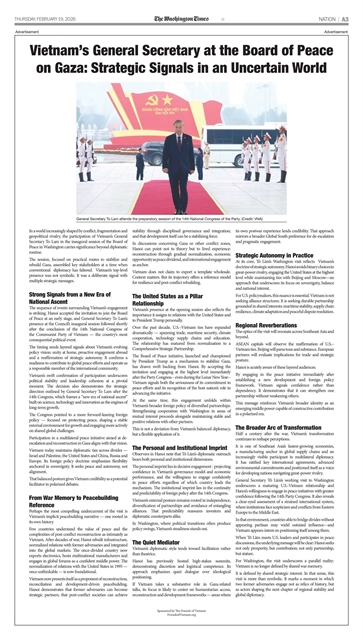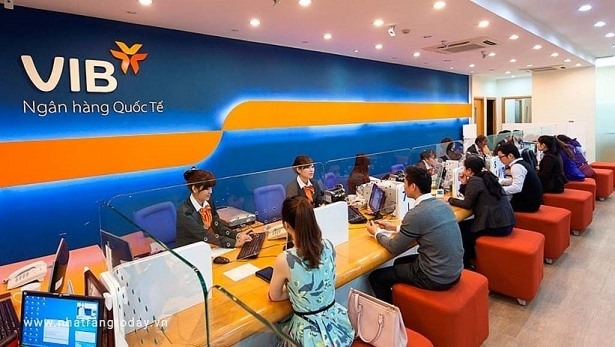 Business Beat
Business Beat

Analysts believe banking credit growth will ease off next year, but since lending activities will mainly be focused on the economy, growth will not be affected.
 |
| Analysts believe banking credit growth will ease off next year, but since lending activities will mainly be focused on the economy, growth will not be affected.— Photo vietnambiz |
Compiled by Thiên Lý
Analysts believe banking credit growth will ease off next year, but since lending activities will mainly be focused on the economy, growth will not be affected.
Bảo Việt Securities Company said in a report on the prospects of the banking sector that credit growth in the next three to five years would be around 14 per cent a year, lower than the average rate of 18.1 per cent in the 2015-17 period.
It said the lower credit growth would be due to a decline in both funds supply and demand.
With respect to the demand, economic growth next year is projected to slow down slightly to 6.4-6.5 per cent, reducing demand from companies for funds to expand production and business.
The expected interest rate hikes of 0.25-0.5 percentage points in 2019 would also have an impact, BVSC analysts said.
Another factor will be the State Bank of Việt Nam’s new regulations on increasing the risk weightage for real estate loans from the current 200 per cent to 250 per cent from next year. It means that for every đồng of real estate loan given, the risk-weighted assets will increase by two and a half đồng. This will make it a significant disincentive for banks to lend to the property sector since their minimum capital requirement is a ratio of their risk-weighted assets under the Basel norms.
Another new central bank regulation reducing the maximum quantum of short-term deposits that can be used for medium- and long-term loans from the current 45 per cent to 40 per cent next year will reduce banks’ liquidity.
Experts in different sectors have pointed out that after several years of high credit growth of over 18 per cent many banks are showing signs of slowing down lending since the last months of 2018.
The country’s credit to GDP ratio now stands at 130 per cent, causing the central bank to keep a close eye on credit.
Various external factors have forced the central bank to tighten monetary policy, experts said.
They include the escalating trade war between the US and China, whose likely effect on inflation is unknown yet. Global fuel prices rose steadily earlier this year, bringing inflationary pressure.
When there is fear of inflation, one of the main weapons central banks deploy is tight money.
Dr. Nguyễn Đình Cung, director of the Central Institute of Economic Management Research, said: “The State Bank of Việt Nam has regulated/ has been carefully regulating credit policies to ease inflationary pressure and enable the country to cope with the risks of an economic slowdown.”
Property companies look beyond banks for funds
Amid widespread expectations that the central bank will continue to pursue its tight credit policy, especially to risky areas like real estate, in 2019 property developers are looking at other sources for funds.
Developers in Việt Nam traditionally relied on two main sources for funding: loans from banks and money from their customers.
However, now they are only allowed to take payments from customers when their project is between 30 and 50 per cent finished.
This means bank credit represents the most important source.
But from January 1 next year banks will be allowed to use only 40 per cent of their short-term funds for medium- and long-term loans, down from the current 45 per cent.
Developers are turning to the securities and bond markets, foreign investment and mergers and acquisitions.
Analysts prefer the latter two considering what happened in the real estate market this year.
According to the Foreign Investment Agency (FIA), in 2018 FDI flowing into real estate projects was worth over US$6.5 billion, with the biggest investor being Japanese heavyweight Sumitomo Corporation.
In May a Vietnamese-Japanese consortium consisting of four Vietnamese enterprises led by BRG and Sumitomo set up a joint venture to develop the Nhật Tân-Nội Bài smart city project with a total investment of $4.2 billion.
FIA officials also said that the real estate market was likely to attract huge investments from Japan, South Korea and Singapore in the coming years.
The Japan External Trade Organization (JETRO) said around 1,000 Japanese companies were likely to invest in Việt Nam in the next decade, many in the property sector.
Trần Lâm Bình, operations director of IMM Group, said his company had received 20 offers from developers from Japan, South Korea, Malaysia, and Hong Kong to invest between $10 million and $100 million to build apartments, officetels and hotels.
FDI in real estate is indeed rising, and investors are interested in a range of products from housing and industrial property to office buildings and tourism.
Many foreign investors are ready to enter into joint ventures with reputed Vietnamese developers or invest in projects through mergers and acquisitions.
This year there has been an M & A boom involving Vietnamese and foreign companies, many of them large deals, the first sign that property companies are looking at other sources of funds besides bank loans.
Japan’s Global Group ties up with Nhà Mơ Company to develop the Dream Home Riverside. The Joint Venture between Tiến Phát and Japan’s Sanyo Homes Corporation developed Ascent Lakeside project at a cost of US$30 million. Japan’s Mikazuki invested $100 million in the Bamboo Capital Complex.
A report from Savills said property remained an attractive proposition for developers interested in mixed-use projects with residential components in major cities.
CapitaLand, for instance, acquired a 0.9ha site in a prime location in Hà Nội’s Tây Hồ District in March. This will expand CapitaLand’s portfolio to 12 residential developments, one integrated development, and 21 serviced residences in six cities in Việt Nam.
Another Singaporean developer, Keppel Land, acquired the remaining 10 per cent stake in Jencity Limited, which has plans to build a township - Saigon Sports City - for $11.4 million.
Investors are also seeking to acquire sites and properties in the hospitality sector amid increasing consumer demand and surging international arrivals. In January Japan’s Mikazuki Hotel Group announced plans to invest $100 million in a project in Đà Nẵng to accommodate a five-star hotel, a waterpark, a theme park, and an F&B complex fronting the beach.
Vietnamese investment company Bamboo Capital acquired the Malibu resort for some $14.8 million from Indochina Hội An Beach Villas Co., Ltd.
The securities market is also expected to help mobilise funds for real estate enterprises especially after Việt Nam was added to a watch list for possible reclassification as a secondary emerging market by FTSE Russell.
In recent times more and more real estate companies have listed their shares on the market and raised funds. The number used to be very small, but began to increase in 2017 and accelerated this year with many famous real estate companies listing.
They include Văn Phú-Invest Joint Stock Company, CEN Land, Everland, and Kosy.
Market observers said this trend would continue in 2019 and into the future.— VNS